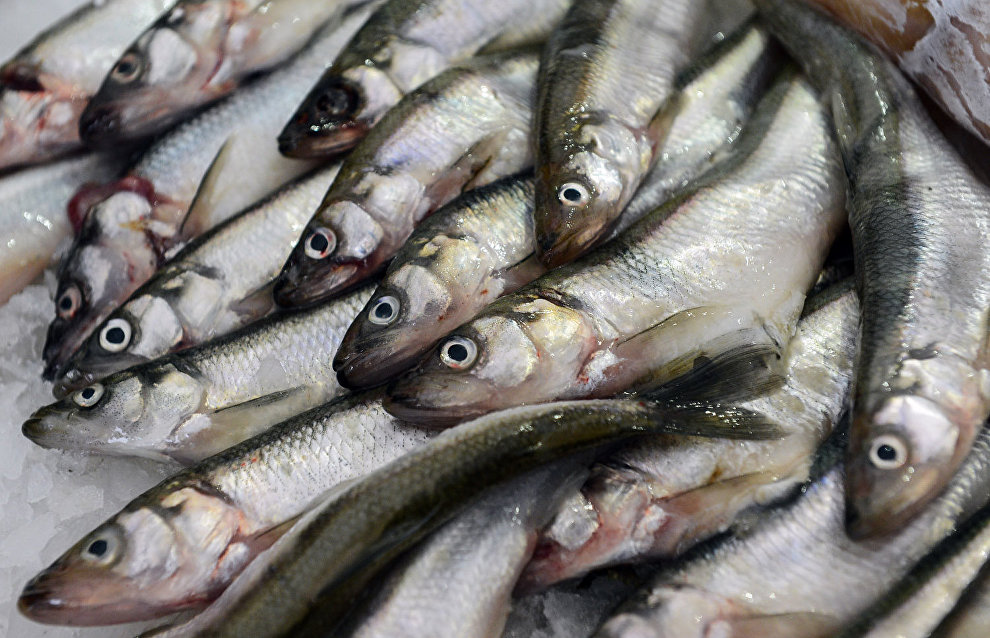Industrial capelin catching in Barents Sea to be banned in 2016
Russia and Norway have agreed to ban industrial capelin catching in the Barents and Norwegian seas in 2016. The decision was made at the 45th session of the Joint Russian-Norwegian Fisheries Commission, which highlighted fishing quotas.
Yevgeny Shamrai, deputy research director at the Polar Research Institute of Marine Fisheries and Oceanography (PINRO), said capelin populations were high enough at the moment but this fish is basic food for other animals.
"Considering the number of capelin consumers, we risk undermining its reserves if we allow industrial-scale catching," he said.
Yet, Shamrai said the ban on capelin catching would not be comprehensive. "The ban on capelin catching doesn't exclude amateur angling, fishing for research purposes and quotas for indigenous people. This type of fishing wouldn't affect the capelin reserves," he said.
The commission also set quotas for cod, haddock, black halibut, capelin, rock cod and other types of marine bio resources in the Barents and Norwegian seas for 2016.
Quotas for black halibut in 2016 will be 22,000 metric tons against 19,000 in 2015. The Northeast Arctic cod quota will remain the same — 894,000 metric tons, with 401,000 metric tons for Norway, 389,000 metric tons for Russia and the remainder for third-party countries.
